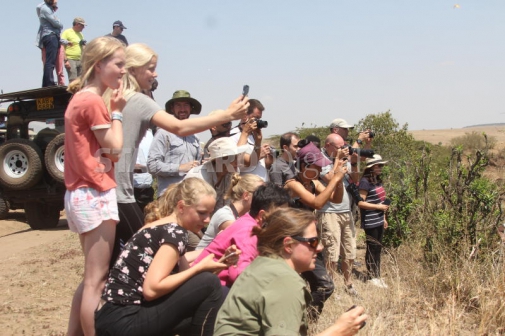×
The Standard e-Paper
Smart Minds Choose Us

Tourism stakeholders have dismissed fears that Kenya will lose out on revenue generated by the annual wildebeest migration.
It is the first time in the country’s history that a General Election is coinciding with crossing of close to two million animals in the Mara River – in what is considered one of the greatest marvels of nature.